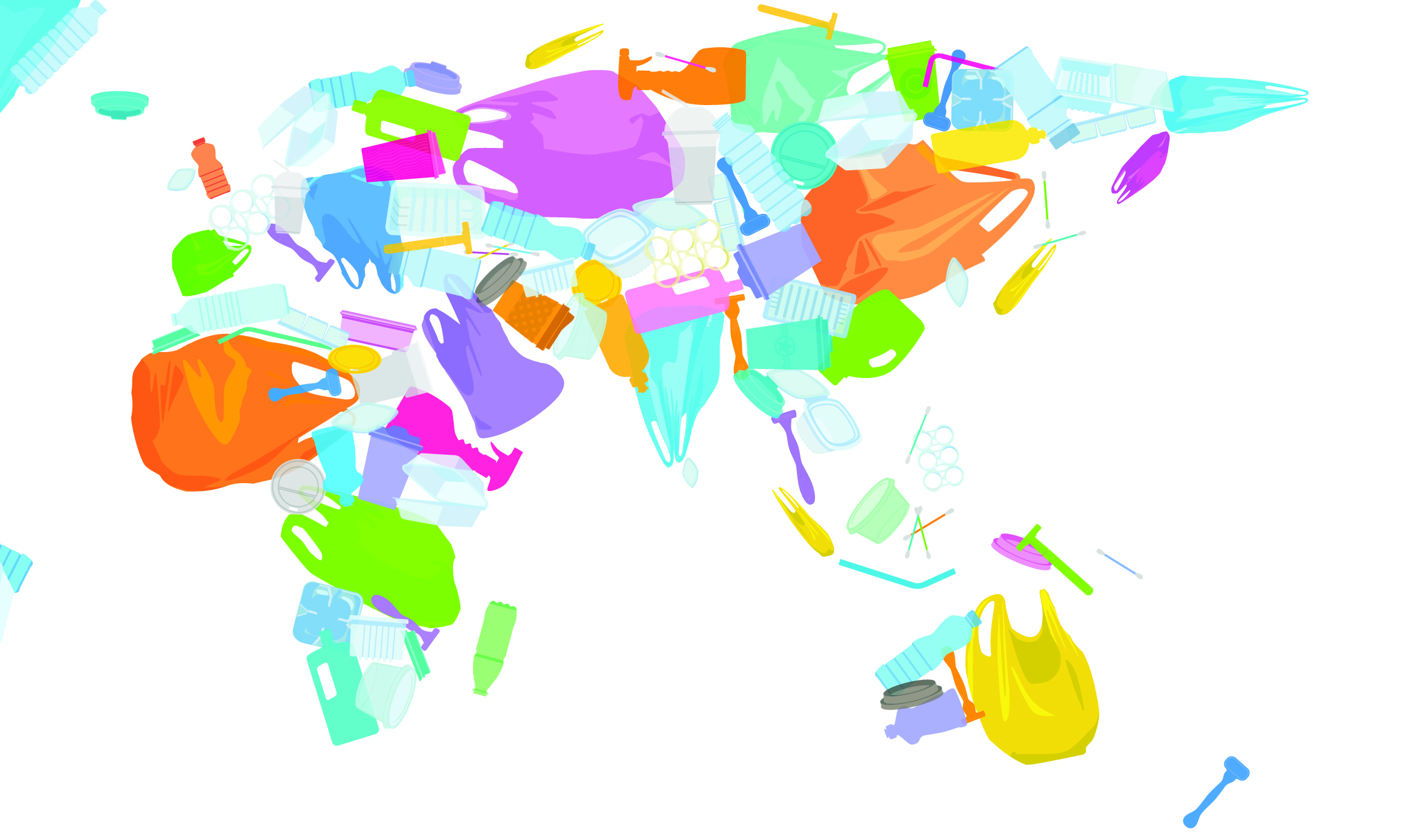Despite some promising efforts to address the growing problem of plastic waste like banning plastic shopping bags or straws, specific prevention targets for different plastic waste are still not widespread in Europe, according to a European Environment Agency (EEA) assessment.
Only nine countries have explicit targets in place for plastic waste prevention.
The EEA report ‘Preventing plastic waste in Europe,’ provides a state-of-play of plastic waste prevention in Europe. It mapped and analysed efforts across EEA member countries to address plastic waste generation through prevention measures.
The assessment says that prevention of the most environmentally harmful plastic types, such as single-use plastics and non-recyclable plastic products, should be prioritised.
While fees on plastic shopping bags have led to notable results in reducing their use and waste in many countries, such measures should also be applied to other types of plastic products, the report says – for example to plastic packaging waste, which is the single largest plastic waste stream in Europe.
Currently, in Europe, only 30% of plastic waste is collected for recycling. In addition, most recycling operations take place outside Europe, where environmental practices and standards may differ.
Plastic waste is an increasing problem around the world. The EU has recently taken action on waste prevention, and by introducing new measures to address plastic waste and pollution – through the European Commission’s 2018 European strategy for plastics in a circular economy and the recently adopted Single Use Plastics Directive.
The European strategy notes that plastic recycling capacities have not kept pace with the increasing global production of plastics.
Currently, in Europe, only 30% of plastic waste is collected for recycling. In addition, most recycling operations take place outside Europe, where environmental practices and standards may differ.
The EEA assessment identified 173 waste prevention measures either implemented in countries or planned for implementation.
The report is based on a review of national and regional waste prevention programmes and results from a survey conducted across 27 EU Member States (apart from Cyprus, which has not adopted a waste prevention programme), plus Iceland, Norway, Switzerland and Turkey.
At a glance
- Plastic waste has been declared a priority waste stream in nearly half of the EEA member countries.
- Of the 173 waste prevention measures identified, 105 cover the production phase of plastic products and 69 cover the consumption phase. With the exception of national actions, such as a levy on plastic carrier bags, the majority of the identified prevention measures consist of voluntary agreements and information activities.
- Around 20% of the measures (ie, 37 of the 173 measures identified) are market-based instruments. Of these, the majority relate to the charging of fees to consumers for use of plastic carrier bags.
- A total of 30 voluntary agreements on plastic waste prevention have been started involving different sets of stakeholders in the countries reviewed. They often include specific targets that are monitored by internal or external parties.
- Only nine countries have explicit waste prevention targets included in their prevention programmes. Clear and coherent targets, that are helpful to drive innovation and improve waste practices, are still lacking for most product groups and thus the levels of activity and ambition differ among the countries.
- Good practice examples identified include both regulatory initiatives such as a ban on certain plastic products and softer measures such as stakeholder agreements to reduce the consumption of plastic products (mainly packaging), and training and capacity building. Unfortunately, there are very few cases where the adopted initiatives have been properly evaluated, making progress hard to assess.
